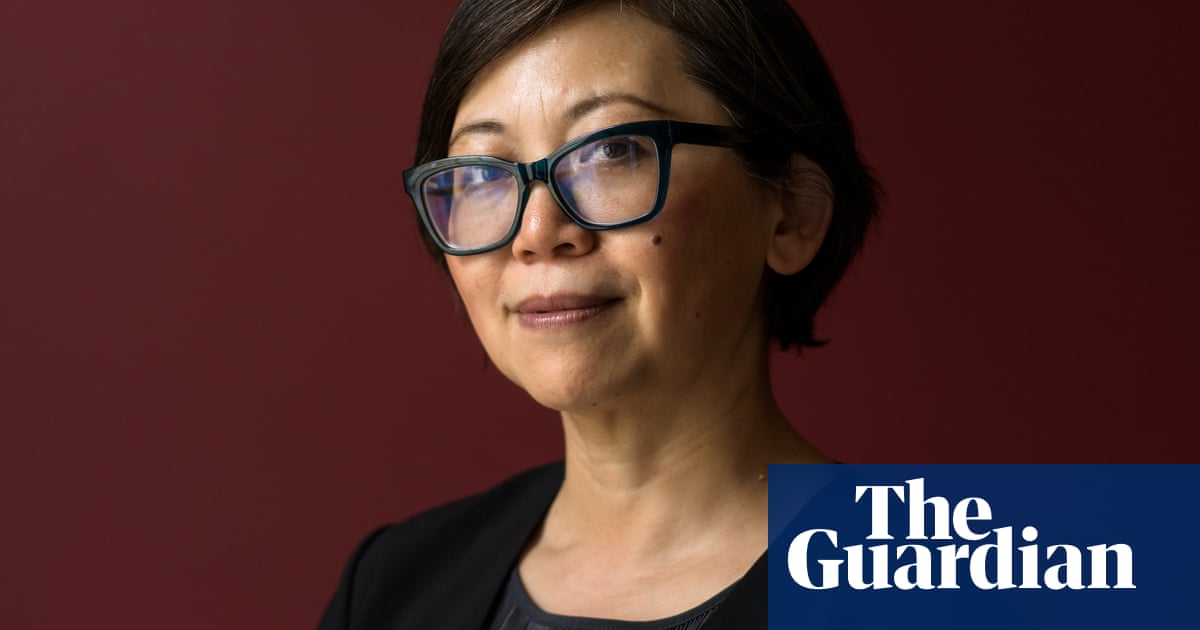In this quietly devastating account of life after the death by suicide of both of her sons, Yiyun Li refuses to use “mourning” or “grieving” because they cannot adequately contain the magnitude of her experience. “My husband and I had two children and lost them both,” she writes, and words can only “fall short”.
She begins by laying out the facts. And those facts, raw and precise, are shattering: Vincent died in 2017, aged 16. James died in 2024, aged 19. Vincent, we learn, loved baking and knitting, and did not live long enough to graduate high school. James, a brilliant linguist studying at Princeton, where Li teaches creative writing, took his last Japanese class on a Friday. “Facts, with their logic, meaning, and weight, are what I hold on to,” she writes. Things in Nature Merely Grow is by necessity profoundly sad, but in the act of sharing details of the “abyss” she now inhabits, Li has created something both inclusive and humane.
Language, of course, is vital to this project. Having emigrated from China to the US in 1996 to study immunology at the University of Iowa, Li moved to the creative writing programme and was taught by Marilynne Robinson, among others. After that, her literary ascent was rapid. She received accolades for her nonfiction and novels, including The Vagrants, set in post-Mao China, and her short story collection Wednesday’s Child. Choosing to write and publish in English was a “crucial decision”, she wrote. She banished Chinese with determination and now thinks and writes only in English. For Li, linguistic choices are always significant: “Where else can my mind live but in words?”
In the aftermath of Vincent’s death, Li published Where Reasons End, a novel that takes the form of an intense, sparring conversation between a mother and son after his death. She wrote it to feel her way to “unanswerable questions”, having found little to console her in the existing literature of grief. But writing to – or for – James is a different matter. “It will have to be done through thinking,” she concludes, and even then, it will be “an approximation of understanding”.
James, with his gentle smile and understated sense of humour, is depicted as a brilliant, autistic, self-contained, somewhat unreachable person who “thought hard: deeply, philosophically, and privately”. Months before his death, he reread Albert Camus’ play Caligula “a bit obsessively”, and watched English, Spanish and Japanese productions of it online. Now, with hindsight, Li homes in on a particular line: “Men die; and they are not happy.” She repeats this phrase, considering it a possible key to James’s thoughts.
Li understands that nobody can know the precise reasons a person chooses suicide but, still, she circles back towards the same thoughts: did James “back himself into a corner” through his readings of Camus’ The Myth of Sisyphus and Caligula? Was the decision he made connected to Vincent’s death? Trying to comprehend, Li experiments with painful variants of the refrain: “Children die, and they are not happy”; “Children die, and parents go on living”.
This cannot be a conventional memoir, but Li takes us back to her childhood, and to her own mother who plays cruel, psychologically damaging tricks on her. Glimpses of the abuse she endured explain why being “orphaned” from her native language and from China were, in fact, vital acts of self-preservation. The story shifts briefly to Li’s own period of suicidal depression, depicted in her 2017 memoir, Dear Friend, from My Life I Write to You in Your Life, and the correlations and questions remain unanswerable.What Li tells us is so terribly, “epically” sad that it can only be conveyed through a restrained and astringent English. The effect does not distance the reader, though; instead, there is an almost unbearable intimacy. Alongside references to Euclidean geometry and Shakespeare’s King John are domestic details that remind us that Vincent and James were boys, in a loving family, on the way to becoming young men: Pokémon, socks, pancakes, phone passwords, the family dog Quintus (the fifth one). These fragments of life before, imbued with everyday love, are achingly poignant.
Society prefers grieving mothers to act a certain way. Literature, too. “Those mothers in the Greek and Shakespearean tragedies voiced their sorrows at a higher pitch than mine,” Li writes. She is aware that her instinct to use intellect to navigate grief can arouse suspicion, hostility even. Towards the end of the book, Li addresses the treatment she receives from the Chinese media, whose message is, terrifyingly, that “a traitor deserves to be punished”. She insists that she is not angry, but anger is evident nonetheless. Not at her sons: for them there is love and respect. But towards her mother and China, both epitomising cruelty and shunning. And there is rightful indignation at hurtful and insensitive things people say to the grieving; this book should be read not least to gain an understanding of how to speak to a bereaved person. Instances of thoughtlessness are offset, thankfully, by stories of immense kindness from lifelong friends, such as editor Brigid Hughes, and the writer Elizabeth McCracken.
Grieving is not a useful word for Li because it implies an end point, a release from the loss. There is no redemptive moment of healing here; things in nature merely grow, they are not automatically resolved, wounds are not neatly sutured. But growing is life and Li is, and always will be, a mother. Her book is a meditation on living and radical acceptance that has the potential to offer deep solace; comfort from the abyss.
after newsletter promotion
Suzanne Joinson is the author of The Museum of Lost and Fragile Things (Indigo Press). Things in Nature Merely Grow by Yiyun Li is published by 4th Estate (£16.99). To support the Guardian order your copy at guardianbookshop.com. Delivery charges may apply.
